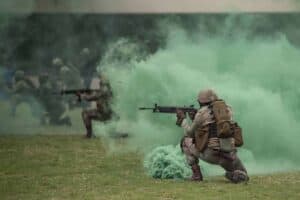Some videos have been trending on social media recently, including one where pupils idolise Soweto’s popular Konka nightclub.

If the Enyobeni tavern tragedy has taught us anything, it’s that our country has one of the worst drinking habits and behaviour, especially among young people.
Don’t get me wrong, I’m not saying people should not drink, but I think it’s time we take a step back and finally have a conversation about the extent of alcohol usage and problematic consumption.
How many times are we going to be shocked at under-age drinking when, at the same time, we promote the big misconception that alcohol is a good thing?
ALSO READ: Enyobeni: Ramaphosa pleads with tavern owners to stop selling alcohol to children
Three years ago, data published by the World Health Organisation (WHO) showed South Africa had some of the heaviest drinkers globally, despite relatively high levels of abstinence in the population.
According to WHO’s data, tracked levels of consumption of alcohol, in 2016 showed that an estimated 31% of the population aged 15 and older consumed alcohol.
The majority (69%) could abstain from drinking for at least 12 months.
Alarmingly, the majority of South African alcohol consumers are also classified as heavy or binge drinkers; with 59% of the drinking population consuming more than 60 grams or more of pure alcohol on at least one occasion over a 30-day period.
Sixty grams of pure alcohol corresponds approximately to six standard alcoholic drinks.
Some videos have been trending on social media recently, including one where pupils idolise Soweto’s popular Konka nightclub.
While it may seem like harmless fun, alcohol consumption is an underlying problem in our society and too many young people fall prey to peer pressure just to fit in.
READ MORE: Enyobeni tragedy wouldn’t happen in Sandton or Cape Town – here’s why
I had a casual conversation with my 13-year-old sister about under-age drinking and peer pressure and I realised that apart from the problem being a generational thing, social media has also constantly played a part in creating unhealthy habits among teens everywhere.
It does not help to say “when I was their age, I was playing with my peers” when society at large is part of the problem in creating bad habits.
As parents and communities we casually expose under-age individuals to alcohol, from a young age, by sending them to buy alcohol, for instance.
Sitting by and not saying anything about the problem is perpetuating it.
Excuses like Sidla ubusha bethu (which loosely translates as “We’re enjoying our youth”), or sending a child to buy alcohol at a tavern, or even just allowing then to watch while you drink, contributes.
And like President Cyril Ramaphosa said: “We are losing our future generation to the scourge of under-age drinking”.
And not just under-age drinking but also alcohol and drug abuse in general.
READ MORE: ‘It wasn’t my intention for this to happen’: Enyobeni tavern owner
It will continue until we’re actually ready to have a conversation about the Enyobeni Tavern tragedy and under-age alcohol abuse.
So while we stand behind the SA Alcohol Policy Alliance (SAAPA) calling for stricter laws on liquor outlets and licence holders, communities also need to know how to raise objections to outlets acquiring liquor licences in their neighbourhoods.
As a country, we desperately need tougher laws.
Our current liquor regulations clearly aren’t tough enough. But let us not shy away from our own responsibilities.
Support Local Journalism
Add The Citizen as a Preferred Source on Google and follow us on Google News to see more of our trusted reporting in Google News and Top Stories.






